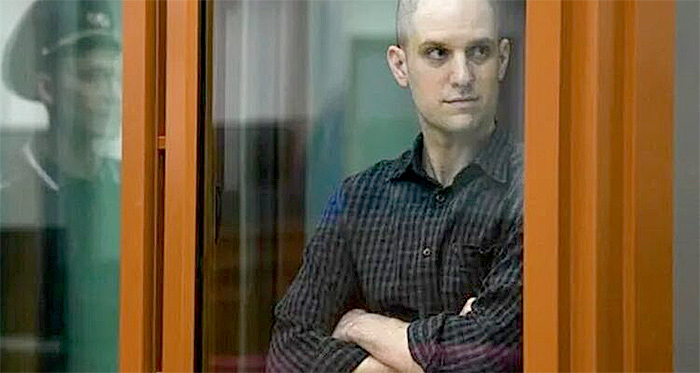A prisoner swap involving as many as 30 people held by Russia, possibly including jailed Jewish American journalist Evan Gershkovich and Jewish dissident Vladimir Kara-Murza, could be underway.
If it comes to pass, the exchange would be the largest prisoner swap between Russia and the United States since the end of the Cold War.
Signs of an approaching prisoner swap have been reported by independent Russian media as well as international press.
Gershkovich, a reporter for the Wall Street Journal arrested in March 2023 on allegations of espionage, was sentenced earlier this month to 16 years in a maximum security prison.
He, his employer, and the United States government vehemently deny the charges.
Security experts have long considered a prisoner swap to be the best bet for returning Gershkovich to the United States.

Senior officials at the Kremlin have said that talks over a swap that would include his release are underway.
It could involve between 20 and 30 political prisoners, according to a story published on Wednesday in the independent newsletter the Kozlov Paper that was reprinted in the Moscow Times.
Russian media has also reported at least six Russian government planes flying to and from the regions where the prisoners are held, according to Reuters, adding to speculation of an impending exchange.
Among the prisoners in Russia who could be involved in the swap are Kara-Murza, a Russian-British activist and journalist sentenced on charges of treason who was recently moved from his Siberian prison; opposition politician Ilya Yashin; Lilia Chanysheva and Ksenia Fadeeva, former regional directors for the offices of the late Russian opposition leader Alexei Navalny; human rights activist Oleg Orlov; 19-year-old dual Russian-German citizen Kevin Lik, the youngest person ever convicted of treason in Russia; artist and activist Daniil Krinari; and artist Alexandra Skochilenko.
Neither American nor Russian officials confirmed that the prisoner movements were connected to a prisoner exchange, the Washington Post and Reuters reported, which is not unusual ahead of prisoner swaps.
The largest swap since the Cold War came in 2010 and involved 14 people across both sides.